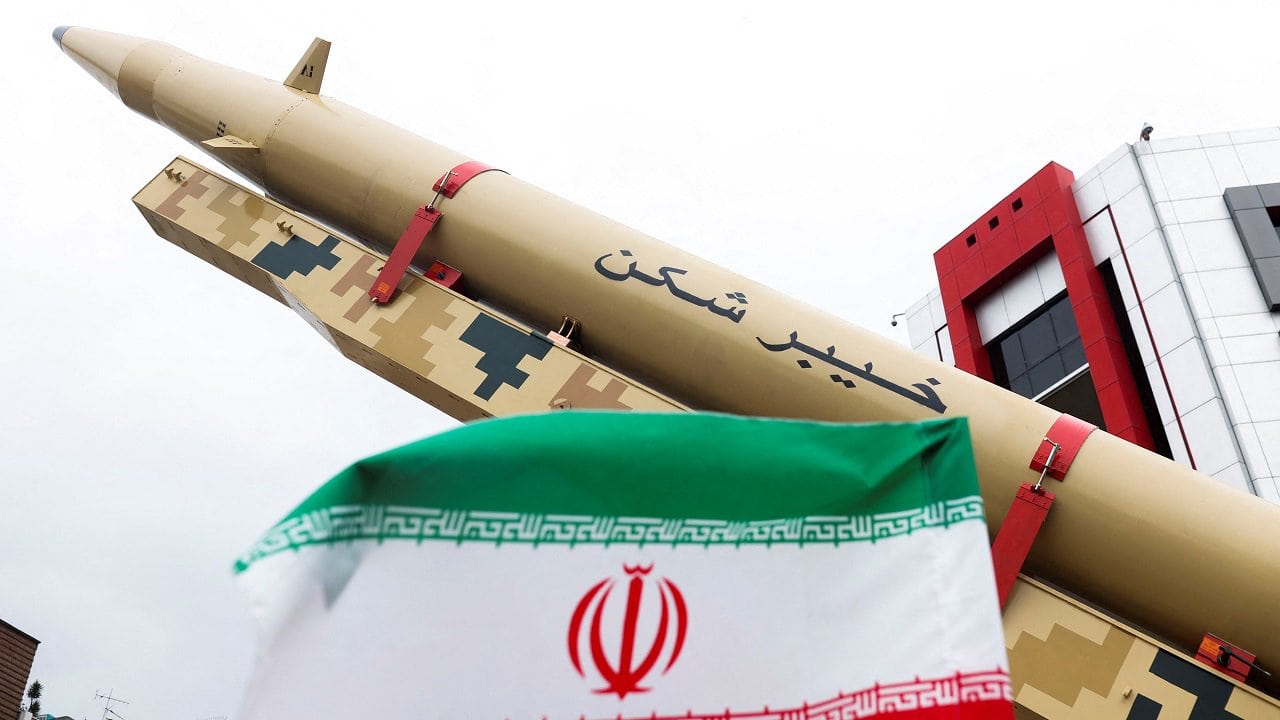Earlier this week, several rockets struck the Khor Mor gas field in northern Iraq, according to officials. While no injuries or damage were reported, the attack marks the latest in a recent series of similar barrages. The rockets landed in the Kurdistan Region’s district of Sulaimaniyah just days after Kurdistan’s Prime Minister, Masrour Barzani, met with his Iraqi counterpart to discuss issues surrounding gas reserves. No group has claimed responsibility for the Khor Mor attack, but Iran-backed militias in Iraq have picked up the pace of this kind of attack.
According to the Kurdish Rudaw media, “The rockets struck at around 7:50 p.m. on Monday evening, Mayor of Chamchamal district Ramik Ramadhan told Rudaw’s Hemin Baban, adding that the extent of damages made due to the attack remain[s] unclear.” The Mayor added that “Ahmed Mufti, Kurdistan Regional Government’s natural resources deputy minister, confirmed the news to Rudaw, adding that investigations into the incident have begun.”
Rocket and Missile Attacks
Last month, a series of Katyusha rocket attacks targeted Emirati energy firm Dana Gas over the span of a few days. Dana Gas is also located in Sulaimaniyah. The first rocket landed inside Khor Mor, followed by a second rocket two days later that targeted an employee housing complex. The Counter-Terrorism Group, a security organization that functions in northern Iraq, stated that a total of six rockets hit the region during the series of attacks.
In March, Iran claimed responsibility for a similar attack targeting the Kurdistan region’s energy sector. The regime’s Iraq-based militias launched more than a dozen ballistic missiles in this attack. While the Islamic Revolutionary Guard Corps claims the missile strike hit Israeli “strategic centers” in Erbil, Kurdistan’s capital, reports indicate otherwise. Officials in Tehran called the attack a retaliatory measure for an earlier Israeli air raid in Syria that killed two IRGC members. However, Reuters reported that most of the missiles struck the residence of a Kurdish businessman “involved in the autonomous Kurdistan region’s energy sector.”
An Iraqi security official detailed that prior to the missile attack, “There had been two recent meetings between Israeli and U.S. energy officials and specialists at the villa to discuss shipping Kurdistan gas to Turkey via a new pipeline.” Reuters elaborated that the meetings centered on Iraq’s possible role in supplying natural gas to Europe and Turkey, potentially with the help of Israel. Russia had invaded Ukraine a month earlier, and the international community was looking for new energy suppliers.
Iran Fears for Its Energy Sectors
Around 30-40% of Iraq’s power supply comes from Iranian electricity, natural gas and imports, and Baghdad’s increased cooperation with the U.S.,Turkey, and European countries could threaten Tehran’s position as its main gas provider. Additionally, U.S.-Iran nuclear negotiations have not progressed in Vienna. The effort to revive the 2015 Joint Comprehensive Plan of Action seems to be flickering. This means that a lifting of sanctions on Iran’s energy sector is improbable. Iran’s attacks probably stem from the regime’s perception of its own precarious position.
Prior to the March attack, the last time Iranian-backed militias used ballistic missiles in a strike was following the U.S.-led assassination of Gen. Qassem Soleimani in January 2020. Iran does not typically use ballistic missiles, and the IRGC uses rockets, drones, and other projectiles to target its adversaries region-wide. This year, industry experts and analysts assert that Iran has been behind several Katyusha rocket attacks in Iraq alone. In January, U.S. troops residing in Iraqi military bases were hit by eight rounds of indirect fire in Syria. Five Katyusha rockets struck the base in the western Anbar province, and three other rockets fell nearby.
Iran’s Katyusha rocket barrages have also targeted the energy sector in Iraq in recent months. In April, three Katyusha rockets struck an oil refinery in the Erbil governorate of northeastern Iraq. According to Kurdish officials, the rockets were fired from the Al-Hamdaniya district, near Mosul. The CEO of the targeted refinery, Baz Karim, was one of the energy executives targeted in the March ballistic missile barrage in Erbil.
While Iran has not admitted its role in this week’s rocket attacks, the IRGC’s history in carrying out similar operations indicate it is to blame. As prospects for the JCPOA revival and the lifting of sanctions continue to dwindle, the regime may escalate the scale and scope of attacks targeting the energy sector throughout the region.
Maya Carlin is a Middle East Defense Editor with 19FortyFive. She is also an analyst with the Center for Security Policy and a former Anna Sobol Levy Fellow at IDC Herzliya in Israel. She has by-lines in many publications, including The National Interest, Jerusalem Post, and Times of Israel.

